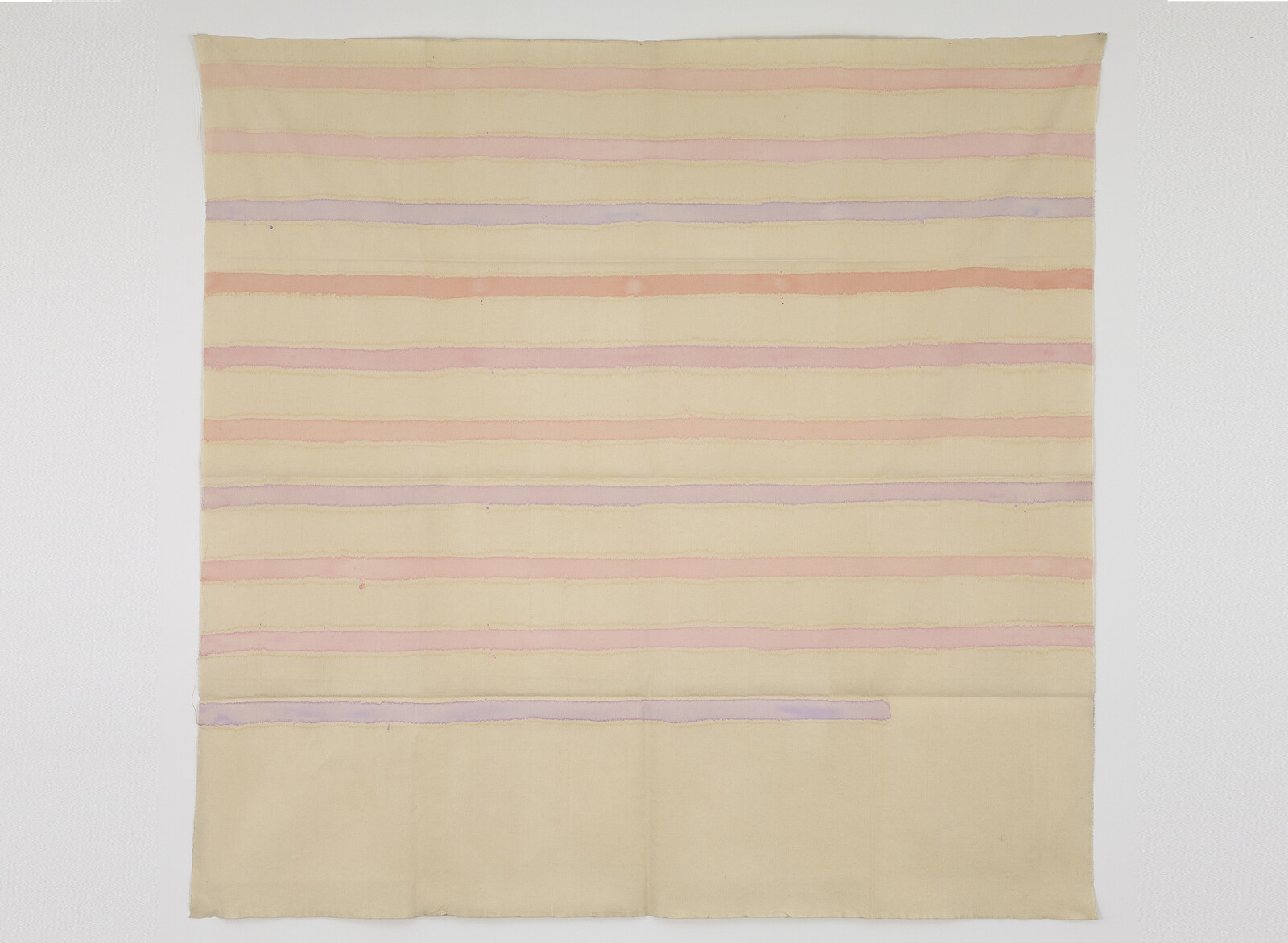Quasi Tutto
May 14–September 4, 2016
Rua D. João de Castro, 210
4150–417 Porto
Portugal
Hours: Monday–Sunday 10am–7pm,
Saturday–Sunday 10am–8pm
T +351 22 615 6500
serralves@serralves.pt
Giorgio Griffa: Quasi Tutto is the first museum survey of paintings and drawings by the Italian artist Giorgio Griffa as well as his first exhibition in Portugal. The culmination of a suite of exhibitions originating at the Centre d’Art Contemporain, Geneva in 2015 which travelled to the Bergen Kunsthall, Norway, and an exhibition of Griffa’s works on paper at the Fondazione Giuliani, Rome in early 2016, the exhibition at Serralves presents an expanded selection of more than 40 paintings and over 50 drawings dating from 1969 to 2015. Surveying Griffa’s highly abstract yet eminently pictorial production, it reveals the artist’s commitment to the practice of painting as a cumulative process whose continuum is part of a broader physical and metaphysical reality.
Giorgio Griffa (1936, Turin) is part of the generation of Italian artists who came of age in the 1960s. Griffa set about reducing painting to its essential components of raw, unstretched canvas, pigment and brushstrokes, stripped of expressive subjectivity, radically redefining the medium and its possibilities within a world in transformation. While his use of simple materials and gestures aligns him with the work of the Italian arte povera artists and the proponents of Supports/Surfaces in France who were his peers, his interest in the immediacy and performative dimension of painting as a time-based process was also inspired by Zen philosophy.
During the 1980s, a return to neo-expressionism and the Italian transavanguardia marked for Griffa a period of re-engagement with the expressive potential of his elemental use of colour, line and gesture that had sustained his practice in the previous decade. Inspired in part by fellow artist Mario Merz’s use of the Fibonacci sequence, the numbers of the golden ratio entered into Griffa’s pictorial language in the 1990s. His paintings from the past two decades bring together these constitutive elements with renewed vigour and vital urgency. The exhibition at Serralves reflects these key moments in Griffa’s oeuvre, including important works from the artist’s cycle of paintings known as “Alter Ego” that constitute a conceptual and intellectual dialogue with painters from Tintoretto to Matisse, Brice Marden and Agnes Martin.
The exhibition also highlights the importance of Griffa’s drawings from across the same period. The drawings offer insight into Griffa’s continued elaboration of ideas and a reflection of an oeuvre in parallel in which the repetitive gesture and the sign point to the origins of painting as primordial and notational.
Curated by Serralves Museum director Suzanne Cotter with Andrea Bellini, director of the Centre d’Art Contemporain, Geneva, the exhibition is organized by the Serralves Museum of Contemporary Art, Porto, in association with Centre d’Art Contemporain, Geneva; Bergen Kunsthall, Bergen; and the Fondazione Giuliani, Rome.
A fully-illustrated book, edited by Andrea Bellini and published by Mousse Publishing, presents the work of the artist over 50 years. The book includes new essays by Andrea Bellini, Luca Cerizza, Laura Cherubini, Martin Clark, Suzanne Cotter, and Chris Dercon, as well as an interview with the artist conducted by Hans Ulrich Obrist, together with writings by the artist selected by Marianna Vecellio.
A programme of tours and talks accompanies the exhibition. A conversation between the artist, Andrea Bellini and Suzanne Cotter will take place on May 14.
About Serralves
The Serralves Museum of Contemporary Art is the foremost museum for contemporary art in Portugal, and one of Europe’s most renowned institutions for contemporary art and culture. Uniquely sited on the grounds of the Serralves Foundation in Porto—which also comprises an 18-hectare Park and the Serralves Villa, a landmark art deco building—the Museum designed by Álvaro Siza opened in 1999. Through its exhibitions, collection, publications, performing arts, and public programmes, Serralves fosters the understanding and appreciation of contemporary art and culture in Portugal and around the world.



